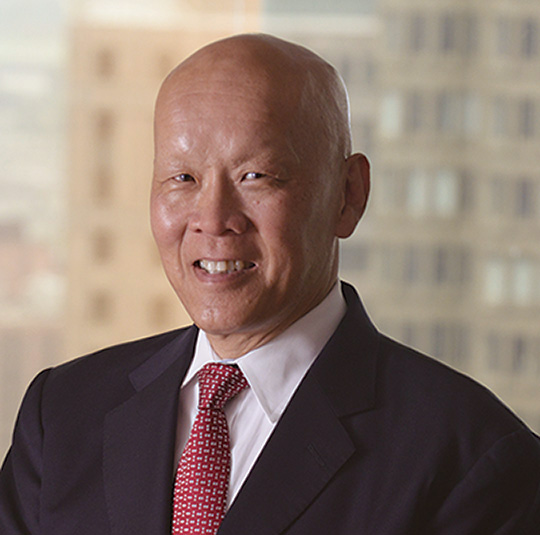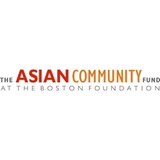Do you think that if most people were
asked to guess the fastest growing
population in Greater Boston, they
would answer the Asian population?
No, there is definitely a lack of awareness of the
Asian community and its issues, which contributes
to the invisibility Asians experience. And
it extends to philanthropy. There have been
studies that show the Asian community has
received substantially less proportionately than
other communities.
What do you think are the Asian
community’s greatest strengths
and challenges?
The folks who come here are immigrants and
it takes a lot of drive for someone to leave
their homeland to come to a new country in
search of opportunity. There is a commitment
and dedication to achieving economic success
and stability—and adding to the quality of life
in this country. Contrary to what we’ve been
hearing for the last four years, immigrants are
some of our most loyal residents. They have
brought so much value to this country. Instead,
they’ve been demonized and the target of so
much xenophobia and abuse from people,
especially now.
Xenophobia against Asian Americans
has always existed, but it’s increased
in recent years.
Yes. Harassment and violence against Asians
increased dramatically when Trump blamed
China for the pandemic. And now we know
what that leads to—it was manifested in such a
horrific and devastating way in the shooting and
killing of six Asian women in Atlanta. It’s also
true that there is a great lack of understanding
about our community.
“I think
this is a
time for
us to think
boldly
and
think big.”
How did the Asian Community Fund
at the Boston Foundation come
about? I believe it was you and Helen
Chin Schlichte, a longtime community
leader, who launched it.
Yes, we thought it would be a good opportunity
to have a fund that would focus on the
needs of the Asian community. But we also
wanted the ACF to be a focal point for the
Asian community. Now, with so much xenophobia
and racism directed toward Asian
Americans, we need to let people know that
we’re here, what our needs are and, hopefully,
help organizations like the Boston Foundation
understand our community better. The
response to launching the ACF has been overwhelming
and really gratifying. A number of
people have been saying, “This is an idea I’ve
been waiting for.”
Why focus on philanthropy?
Having served on the Boston Foundation’s
Board of Directors for seven years now, it’s
really been a wonderful education in how
philanthropy works—and the difference it can
make—particularly when you see the Boston
Foundation model and the convening power
that it has. It has an influence well beyond the
dollars and the grants because of the advocacy
power and the ability to bring together interested
groups to act collaboratively.
Pulling back to a wider view, what
do you see as the greatest challenges
Greater Boston has over the next
two decades?
I think because of the Black Lives Matter
movement and the George Floyd murder,
there has been a lot more awareness of the
plight of the African American community but
also all communities of color. So that’s given
many people and organizations more voice.
The recent murders in Atlanta have drawn
attention to the racism that exists against Asian
Americans. The challenge is to bring everyone
together to work collaboratively toward
common goals, as opposed to each group and
organization pursuing its own path. I think that’s
going to be key.
What’s really exciting is the wide-open race
for Mayor of Boston now. We’re seeing people
from the community who are stepping forward,
and they want to bring everyone together.
There’s no end to the problems that we have
to solve and, while COVID has laid bare many of
the problems, they have always been there and
it’s shame on us for not really addressing them
up to now. It’s great we have the opportunity
and the attention and focus now.
Do you think the pandemic has given
people the opportunity to step back
and look at things in a systemic way?
It’s forced people to do it and I think that’s
good. You always have this question in philanthropy:
Do you seek out the narrow problems
and try to solve them one at a time, or do
you look at the broader issues and look for
systemic solutions? I think this is a time for us
to think boldly and think big. I hope the Boston
Foundation will not only look forward, while
being bold about the major issues, but also
look back and ask, “What did we do right, up
to now?” and “What are the things we should
be doing differently?”
This first in a series of interviews with members of the Boston Foundation’s Board of Directors includes excerpts from a longer conversation. Click here to be able to read the full transcript.



